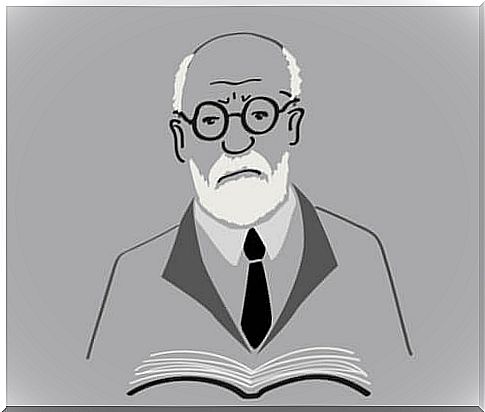What Is Abnormal Psychology?

Perhaps the term abnormal psychology is not the most popular, even within the world of psychology: a fact related perhaps to the connotations that such a name could have. However, as we will see in this article, his field of study is more than known. To understand abnormal psychology, it is essential to first understand what we mean by the term “abnormal.” At first glance, the meaning seems obvious: abnormal indicates something that is out of the norm.
Abnormal psychology focuses on the study and treatment of those mental and emotional disorders that interfere with the ability of a person to feel himself and carry out the functions of daily life. These disorders can be the result of physical or emotional trauma, genetic inheritance, or imbalances in brain chemicals. People who experience these disorders generally require treatment with medication, psychotherapy, or both.
In this sense, abnormal psychology studies people who are “abnormal” or “atypical” compared to members of a given society.
Abnormal psychology: approaches
There are different perspectives approaches within abnormal psychology. While some psychologists or psychiatrists may focus on a single point of view, many use elements from multiple areas to better understand and treat psychological disorders. These perspectives are the psychoanalytic approach, the behavioral approach, the medical / biological approach, and the cognitive approach.
Psychoanalytic approach
The psychoanalytic approach to abnormal psychology has its roots in the theories of Sigmund Freud. The main assumptions include Freud’s belief that abnormality stemmed from psychological causes rather than physical causes, that unresolved conflicts between identification, ego, and superego may contribute to abnormality.
The psychoanalytic approach suggests that many abnormal behaviors stem from unconscious thoughts, wishes, and memories. While these feelings are outside of consciousness, they are believed to still influence conscious actions. Professionals who take this approach believe that by analyzing memories, behaviors, thoughts, and even dreams, people can discover and manage some of the feelings that have led to maladaptive behaviors and distress.

Behavioral approach
The behavioral approach of abnormal psychology focuses on observable behaviors. Behaviorists believe that our actions are largely conditioned by experience rather than the underlying pathology of unconscious forces. Therefore, abnormality is considered to be the development of maladaptive (that is, harmful) behavior patterns for the individual.
This approach emphasizes the environment and how abnormal behavior is acquired. Behaviorism states that all behavior (including abnormal behavior) is learned from the environment and that all behavior that has been learned can also be “unscrupulous” (which is how abnormal behavior is treated).
In behavioral therapy, the focus is on reinforcing positive behaviors and eliminating any reinforcers that maladaptive behaviors may have. Thus, the behavioral approach leaves aside the influence of the information processing itself and focuses on the antecedents (stimuli / reinforcements) and the consequences (behaviors).
Medical / biological approach
The medical / biological approach to abnormal psychology believes that disorders have an organic or physical cause, thus it focuses on the possible biological causes of mental illness. This approach emphasizes understanding the underlying cause of the disorders; thus, the origin can be found in genetic inheritance, in related physical diseases, infections and chemical imbalances.
This approach argues that mental disorders are related to the physical structure and functioning of the brain. Thus, medical treatments are often essentially pharmacological in nature, although medication is often used in conjunction with some form of psychotherapy.
Cognitive approach
The cognitive approach to abnormal psychology focuses on thoughts and their power to influence how we behave and feel. This approach studies how information is processed in the brain and the impact of this processing on behavior.
The basic assumptions are as follows:
- The maladaptive behavior is caused by faulty and irrational cognitions.
- Behavior is the way you think about a problem, rather than the problem itself, that causes mental disorders.
- Individuals can overcome mental disorders by learning to use more appropriate cognitions.
The individual is seen as an active processor of information. The way in which a person perceives, anticipates and evaluates events – his construction of reality – will be what determines his behavior. In addition, this approach points out that many of these thoughts act automatically, without our realizing it.

Abnormality as atypical behavior
Abnormal psychology may focus on atypical behavior, but its approach is not to ensure that all people fit a narrow definition of “normal.” In most cases, it focuses on identifying and treating problems that may be causing distress or impairment in some aspect of a person’s life. Thus, by identifying what is “abnormal” – understanding as abnormal what causes harm – researchers and therapists can improve the interventions they propose in consultation.









